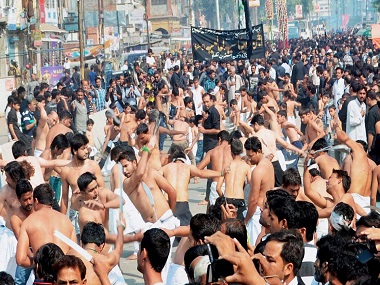Muharram 2019 | Muharram, considered one of the most significant festivals celebrated by the Muslim community, marks the beginning of the Islamic New Year. This year the 10th day of Muharram, also known as Ashura or ‘Youm-e-Ashura’, falls on Tuesday (10 September). Muharram which is the first month of the Islamic calendar is considered to be the holiest of all months after Ramzan for Muslims. [caption id=“attachment_4099381” align=“alignleft” width=“380”] File image of a Muharram procession. PTI[/caption] History: According to
Hindustan Times, Ashura is the day that Imam Hussain Ali, the grandson of Prophet Muhammad was martyred. Believed to be the third Imam of the Shia community, he was killed in 680 AD during the battle of Karbala (in present day Iraq), by the soldiers of the Caliph Yazid. Since then, Imam Hussain’s and his relatives’ death is mourned among the Muslim community. How Muslims around the world observe this day: Ashura or the tenth day of Muharram is observed differently by Shia and Sunni Muslims around the world. During the first ten days of the Muharram month, Shia sect observes a fast to mourn the death of Imam Hussain, and his family members and to honour the sacrifices made in the Battle of Karbala (in present day Iraq). Shia Muslims also refrain from attending and celebrating all joyous events in this period. Many Shias observe this day by participating in processions and self-flagellation. Mourners use sharp objects such as knives or chains which have blades attached to them and other weapons in acts of self flagellation while chanting ‘Ya Hussain’ loudly. Sunni Muslims, on the other hand, observe this day with a fast that lasts from sunrise to sunset. They also hold gatherings to remember the sacrifices of Imam Hussain and attend special prayers in mosques.
Muharram 2019: Muharram is one of the most significant festivals celebrated by the Muslim community as it marks the beginning of the Islamic New Year. It is the first month of the Islamic calendar and is considered to be the holiest of all months after Ramadan.
Advertisement
End of Article


)

)
)
)
)
)
)
)
)



